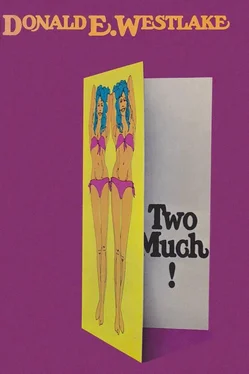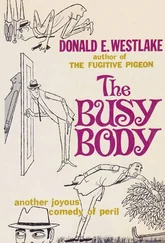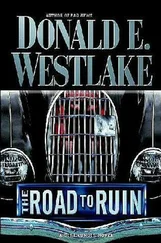Donald Westlake - Two Much!
Здесь есть возможность читать онлайн «Donald Westlake - Two Much!» весь текст электронной книги совершенно бесплатно (целиком полную версию без сокращений). В некоторых случаях можно слушать аудио, скачать через торрент в формате fb2 и присутствует краткое содержание. Город: Philadelphia, Год выпуска: 1975, ISBN: 1975, Издательство: M. Evans, Жанр: Юмористические книги, на английском языке. Описание произведения, (предисловие) а так же отзывы посетителей доступны на портале библиотеки ЛибКат.
- Название:Two Much!
- Автор:
- Издательство:M. Evans
- Жанр:
- Год:1975
- Город:Philadelphia
- ISBN:978-0-87131-168-9
- Рейтинг книги:3 / 5. Голосов: 1
-
Избранное:Добавить в избранное
- Отзывы:
-
Ваша оценка:
- 60
- 1
- 2
- 3
- 4
- 5
Two Much!: краткое содержание, описание и аннотация
Предлагаем к чтению аннотацию, описание, краткое содержание или предисловие (зависит от того, что написал сам автор книги «Two Much!»). Если вы не нашли необходимую информацию о книге — напишите в комментариях, мы постараемся отыскать её.
Two Much! — читать онлайн бесплатно полную книгу (весь текст) целиком
Ниже представлен текст книги, разбитый по страницам. Система сохранения места последней прочитанной страницы, позволяет с удобством читать онлайн бесплатно книгу «Two Much!», без необходимости каждый раз заново искать на чём Вы остановились. Поставьте закладку, и сможете в любой момент перейти на страницу, на которой закончили чтение.
Интервал:
Закладка:
The stewardess came by with a fresh rum and tonic, gave it to me, and glanced over at Liz, pillowing her head against the plastic window. “Is your friend comfortable?”
“Very seldom,” I said. “What’s the movie today?”
“ Guolpo, The Reluctant Chihuahua , with Fred Murray.”
“Ah.”
The stew went on her way, dispensing bloody Marys and bullshots to the off-season spenders, and I prepared myself for departure to the upstairs lounge. I would take Linda Ann Margolies’s thesis with me. Where better to read a master’s thesis on humor than the upstairs lounge of a 747?
The envelope jutted up near the top of the anonymous mélange in the bag. I unzipped, reached in, pulled the thing out, zipped again, restowed the bag, and left my seat. And not a moment too soon: the movie screen was being drawn out of the ceiling at the forward end of the compartment. Turning my back, I climbed the steep spiral staircase and found the lounge unoccupied except for another stew, who was setting out drinkables on a counter and who shouted above the plane noise, “Hello!”
“Hello!”
“Want a drink?”
“Got one!” I shouted, and displayed the glass in my right hand and the manila envelope in my left.
She smiled broadly, then shouted, “Did the movie start?”
“Just about to!”
“I’ll be back! I just love the part with Bill Dana and Cher on the roller coaster!” And off she went.
I chose a seat with a window and a handy table and lots of legroom, sat down, put my drink to one side, and placed the envelope on my lap.
It was Volpinex’s envelope.
The hairs on my forearms recoiled from my shivering skin. I didn’t move, I didn’t breathe, I didn’t blink. The droning rush of airplane filled my ears.
It was Volpinex’s envelope. There on the upper left corner was the printed name and address of his law firm: Leek, Conchell & McPoo, 7 Broad Street, New York, N.Y. 10001. I’d noticed that name and address when I was burning this—
Burning it.
Betty’s name and address were centered, as before. Elisabeth Kerner and so on; it blurred before my eyes.
This is a nightmare. I, too, have fallen asleep, overfull of drink, relaxing at last from the tensions of August, and my worst fears have come to me in a nightmare. I am not awake, this is not Volpinex’s envelope — which I burned burned burned — and it does not contain the proofs of Bart’s nonexistence. I am asleep, I am having a nightmare.
It contained the proofs. I opened the envelope, undoing the metal clip at the end, and found inside a second manila envelope, not quite so large, with a note attached. On Leek, Conchell & McPoo letterhead stationery, some Uriah Heep named Gordon Alworthy was writing to Liz — Liz, not Betty — to say the enclosed envelope had been in the confidential Kerner file in Ernest Volpinex’s desk. The said Alworthy, having been for some time the said Volpinex’s assistant on the Kerner and similar matters (and the said Alworthy undoubtedly now snuffing around to take the said Volpinex’s place), the said Alworthy was pleased to forward the said envelope (unread, need it be said) to the said Miss Kerner, for disposal as she best saw fit.
And inside the said envelope? The familiar photostats, Xeroxes of the familiar documents, the whole grim familiar package.
Eyes. I looked up, and Liz was standing beside my chair, looking down at me. The blurry red mark on her forehead from sleeping against the window did not detract from the coldness of her eyes or the grimness of her expression. “Give it back,” she said.
I simply stared at her. The plunge from euphoria to doom had been too rapid: I had the bends.
She held her hand out for the envelope. “Give it back,” she said, “or I’ll call the stewardess.” She didn’t raise her voice, and yet I could hear every word clearly through the plane noise.
I opened my mouth. At first nothing at all would come, and then I surprised myself by asking, “How long — how long have you had this?”
“Since Friday. Give it back.”
I closed the envelope with clumsy fingers and handed it up to her. “What are you going to do with it?”
“That’s up to you,” she said, and sat down in the nearest chair, facing me slightly from the left.
I gestured at the envelope. “You’re not going to give it, uh, to the police, in other words.”
“Not as long as you do what you’re told.”
Here came the crunch. Watching her carefully, I said, “Liz, what am I going to be told?”
“You’ll live in the house on Saint Croix,” she told me. “By yourself, except for the staff. No women.”
“No women? For God’s sake, what diff—”
“Shut up, Art.” She was all ice. “I’ve inherited from Betty,” she said, “so I’m strong enough now to bounce those freeloading cousins and uncles right out on their asses, and I’m going to do it. Every once in a while you’ll get something in the mail to sign, as my husband. You’ll sign it.”
“Look, Liz—”
“If you don’t sign, or if you leave, the houseboy will call me in New York, and this evidence goes to the Suffolk County District Attorney.”
Was it something I could live with? I said, “For how long, Liz?”
“Till the lawsuits are over.”
“Six months? A year?”
Grinning, she said, “More like ten years. Maybe fifteen.”
“Good Christ! ”
Holding the envelope, she got to her feet and said, “You ought to come down and watch the movie. It’s a comedy, take your mind off your troubles.” And she started away.
“No!” I couldn’t let it happen like this, I just couldn’t let it happen. Jumping up from the chair, I lunged after her, to hold her, stop her, force her to listen until I found the right things to say. Angry, she pulled away from me and cried, “I’ll call the stewardess if you try anything with me!” And turned toward the stairs.
Among the beverages on the counter to my left was an unopened quart bottle of Popov vodka. I picked it up and let her have it across the side of the head. And, as she tottered into the stairwell, I plucked the envelope out of her opening hand.
57
The airline was very relieved when I decided not to be difficult after all. At first I made distraught references to overly steep and narrow spiral staircases, obvious safety hazard, I’d have my attorney look into previous damage suits, etc., etc., and generally I made as much noise and trouble as I could without making any real noise or any real trouble.
But the airline executives who flocked to San Juan and to my side like sparrows to a suet ball didn’t know any of the background. All they knew was that the 747 spiral staircase had been criticized by safety experts in the past, and that now they had a dead woman and distraught husband on their hands. A rich dead woman and a rich distraught husband. So they stroked my shoulders and they offered me sympathy and Jack Daniels and they spoke as emotionally as I did about this unfortunate and unforeseeable accident. (However, they did also mention from time to time that the autopsy would determine the alcohol level in Liz at the moment of her final flight; they did drop that fact in from time to time.)
In addition to compassion for my trouble and a mortician for my bride, the airline did at last also lay on a suite at the El San Juan, in which I was to rest and recover from my emotional ordeal. Once alone in a room dominated by sun plaques, I placed an immediate call to Leek, Conchell & McPoo, got through to Gordon Alworthy, the legal assistant who had sent out that package of trouble to begin with, and told him the situation in twenty-five words or less. “Elizabeth Kerner is dead,” I said. “I am Arthur Dodge, her heir and now controller of the Kerner interests. I want you on your way to San Juan by the next available plane, at Kerner expense, to handle the legal problems at this end.”
Читать дальшеИнтервал:
Закладка:
Похожие книги на «Two Much!»
Представляем Вашему вниманию похожие книги на «Two Much!» списком для выбора. Мы отобрали схожую по названию и смыслу литературу в надежде предоставить читателям больше вариантов отыскать новые, интересные, ещё непрочитанные произведения.
Обсуждение, отзывы о книге «Two Much!» и просто собственные мнения читателей. Оставьте ваши комментарии, напишите, что Вы думаете о произведении, его смысле или главных героях. Укажите что конкретно понравилось, а что нет, и почему Вы так считаете.












